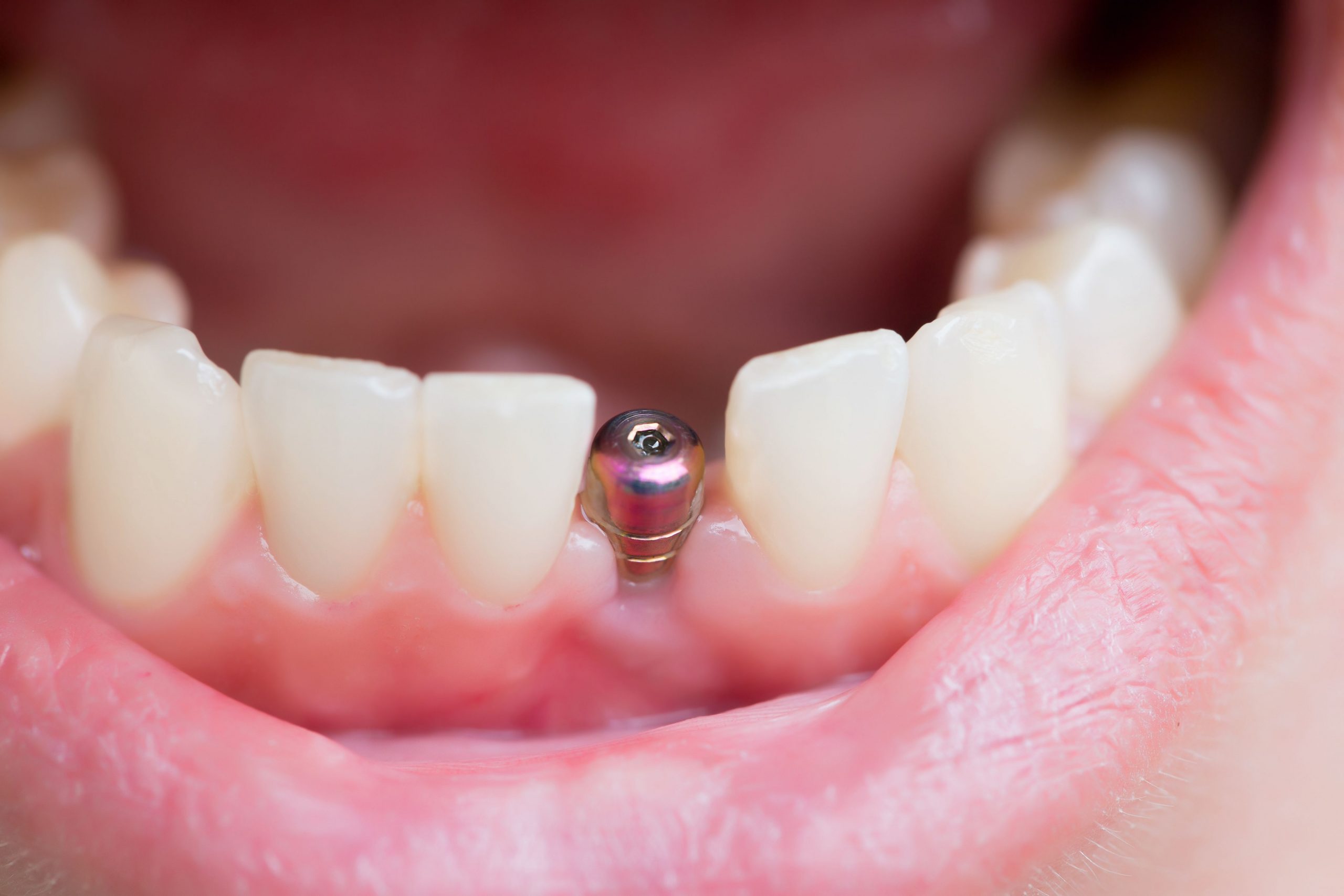
Dental Implants in Turkey
Dental implants are used as artificial roots in cases where no teeth are present or where one or more teeth are missing. With prostheses supported by dental implants, chewing can be performed just like natural teeth, and more successful aesthetic results can be achieved.

What is Dental Implant?
A dental implant is a surgical component that interfaces with the bone of the jaw or skull to support a dental prosthesis such as a crown, bridge, denture, facial prosthesis, or to act as an orthodontic anchor. The basis for modern dental implants is a biologic process called osseointegration, in which materials such as titanium form an intimate bond to bone.
Even in cases of single tooth loss, healthy teeth can be restored without requiring procedures on neighboring teeth. Implants are made of titanium, accepted by body tissues and a highly durable, advanced-technology product.
They are placed through an operation under local anesthesia that lasts about half an hour.
They aim to function flawlessly in the mouth throughout life. Since the surfaces of the implants undergo unique treatments, they form a special bond with the bone, ensuring mechanical and cellular adhesion. The ideal method is to wait 3-6 months for this connection to form.
In recent years, studies have been conducted on making prostheses without waiting. In this method, called immediate loading, the condition of the tissue, the implant area, the torque force applied during placement, the laboratory, and many other criteria must be fully compatible.
Since minimal discrepancies in these relationships can result in the loss of the implant, adhering strictly to waiting periods is in the patient’s best interest.
Implants applied to extraction spaces and healed crests were compared for reactions under early loading, and a risk of 20% loss was detected during immediate loading.
Who Can Receive Dental Implant Treatment?
Dental implant treatment is a popular and effective method to replace missing teeth. Many people can successfully receive this treatment, but some important factors may affect the applicability of implants. Here are the generally sought features in suitable candidates for dental implant treatment:
Adequate Bone Density and Health: Implants are placed in the jawbone, so adequate bone density and health are essential. Patients with bone resorption or weakness may need additional treatments, such as bone grafts.
Good Oral Health: Healthy gums and other teeth play an essential role in the success of implants. People with gum diseases like periodontal disease may need to have these problems treated first.
General Health Condition: Some chronic illnesses or certain medications may affect the applicability of implant treatment. Conditions like diabetes and osteoporosis can affect the healing process and success of the implant.
Smoking: Smoking can pose a risk for both the placement and healing process of implants. Smoking slows down healing by reducing blood flow and can increase the risk of implant failure.
Age: Age is generally not a barrier; implant treatment can be applied to adults. However, in young patients, it may be necessary to wait for jaw development to be completed.
Regular Oral Care and Dental Visits: Regular oral care and dental visits are essential for the longevity of implants.
Every patient is unique, and individual health conditions may vary. Therefore, it is important for people considering dental implant treatment to consult with a dentist or oral surgeon to assess their suitability and create a treatment plan.
How Long Does the Procedure Take?
The duration of dental implant treatment can vary greatly depending on several factors. Here are the main factors that affect the duration:
Preparation Process: Some patients may need additional procedures such as tooth extraction, bone grafting, or gum treatment before implantation. These preparatory stages can extend the total treatment time.
Implant Placement: Surgical placement of the implant usually takes several hours. This procedure is generally done on an outpatient basis, and patients can return home the same day.
Healing and Osseointegration Process: The time required for the implant to integrate with the jawbone fully. This process typically ranges from 3 to 6 months. During this time, the implant becomes firmly embedded in the jawbone and provides stable support.
Placement of Abutment and Prosthesis: After the implant has integrated with the bone, the abutment (the connecting piece that goes on top of the implant) and subsequently the artificial tooth (crown, bridge, or prosthesis) may need to be placed. These stages generally take less time, but sometimes they can be done weeks apart.
Personal Factors: The patient’s overall health, smoking habits, and oral care practices can affect healing.
Complications: Rarely, complications may arise during implant treatment, which can prolong the treatment duration.
Generally, the time from the initial consultation to the final prosthesis placement can range from several months to a year. Since each patient’s situation differs, it is best to consult a dentist or oral surgeon for the most accurate timeline.
Dental Implant Frequently Asked Questions
How long does dental implant last?
Generally speaking, a dental implant is designed to be a permanent fixture in your mouth. In fact, studies have reported a 90 to 95 percent success rate of dental implants over a period of 10 years. However, it’s also possible for a dental implant to fail in the months or years following its placement.
How painful is getting a dental implant?
This is essentially the answer to your question, “do dental implants hurt?” Local anesthesia will numb the nerves surrounding the dental implant area. With numbed nerves, you can expect not to feel any pain during your dental implant procedure. You may feel pressure at times, but it should not cause you discomfort.








